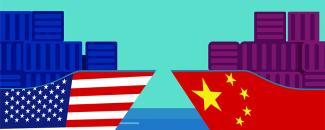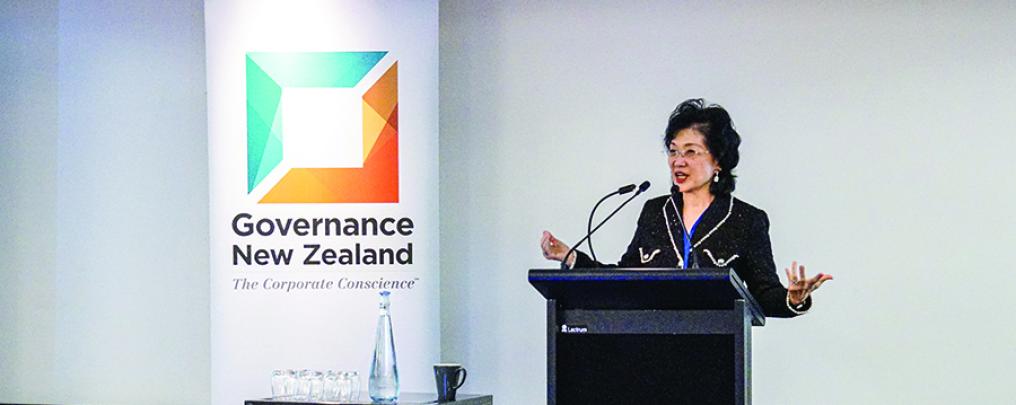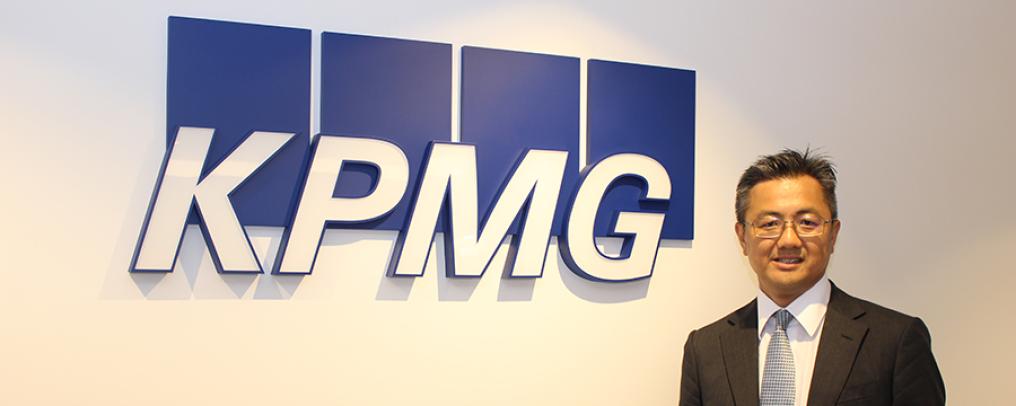Colum Bancroft, Managing Director, AlixPartners, looks at the risks and compliance issues arising from market conditions resulting from the current US-China trade war.
The US-China trade war has caught the world’s attention in recent months, and even more so recently with both the US and China continuing to increase tariffs on various categories of each other’s products. Because of the inability to pass on the additional tariff costs fully to consumers, the profit margins of multinational companies’ Chinese subsidiaries and Chinese exporting businesses are being squeezed, and pressure is on both managers and executives to meet internal and external targets. Combined with the deleveraging of the Chinese economy, the expansion of tariffs creates a perfect storm of tension, leading to a marked increase in channel stuffing, round-tripping, falsified transactions, and other illicit means of inflating reported revenues and earnings. Companies must be prepared for the risks and compliance issues that may arise as attempts are made to reduce the impact from tariffs. One example of a method some companies are employing and its potential financial and compliance implications follows.
Selling goods through an intermediary
Some exporters, in order to manage and reduce the additional costs relating to the tariffs, are coordinating with US importers. The arrangement may involve the China exporter setting up a trading company (the intermediary), or using an independent trading company (often based in Hong Kong), to sell its goods to the intermediary at a lowered price. This lower price is subjected to the 25% tariff duties which results in an effective lowered duty paid via the First Sale for Export programme. The First Sale for Export is a duty reduction programme designed to reduce the dutiable value of eligible products imported into the US and not the final price purchased by the US importer. Instead of selling direct to the end customer, the exporters may sell products to an intermediary without knowing who the final customers are. Regulatory enforcement actions emphasise that compliance cannot be outsourced to third parties, with circumvention of regulations through third parties often expressly prohibited by statute. This places the onus on companies to take reasonable steps to ensure their supply chains and distribution channels remain compliant. Although the onward sales may not be subjected to the trade tariffs, if the products are ultimately sold to sanctioned countries or sanctioned persons, the exporters could end up in breach of the Office of Foreign Assets Control (OFAC) regulations. If an OFAC violation is confirmed, the penalties could be significantly higher than the premium paid on trade tariffs. Due to the inherent bribery, misappropriation of assets, financial fraud and OFAC sanctions-related risks associated with the use of intermediaries, companies must continually monitor the evolving risk landscape in order to maintain an effective compliance programme. Such a programme should include inculcating an organisation-wide culture of compliance through setting an appropriate tone-at-the-top and adequate training tailored to the business and appropriate to the position and seniority of those being trained, and holding individuals accountable for compliance failures. Also maintaining a robust third-party oversight programme, including appropriate levels and frequency of risk-based due diligence procedures conducted throughout the supply chain and distribution channels, again with suitable consequences for lapses in third-party supervision. In addition, and of particular importance in an environment of rapidly changing rules, regulations and market trends is the need for companies to remain vigilant and constantly monitor such changes and assess their impact on the entire range of financial, legal and regulatory risk exposure of the business – including, but not limited to, fraud, corruption, AML, sanctions, and data privacy and handling. Such ad hoc reviews should supplement the regular enterprise-wide risk assessments that need be performed with appropriate frequency as part of a robust compliance programme to ensure that the company’s risk exposure is aligned with its board-approved risk appetite.
Prepare now
Both US and Chinese companies are facing a rough road ahead. The current market conditions make it difficult to understand how best to adjust short-, medium- and long-term plans in order to meet strategic objectives. A holistic approach is necessary to assess and respond to the regular and rapidly changing economic environment and risk landscape, and will require an evaluation of a wide range of strategic, operational, financial and other factors – including possible changes to operating models, trading terms, supply chain transparency, and steps taken to ensure compliant mergers and acquisitions and business-as-usual activity. In the current macro environment, it is more important than ever that boards of directors, audit committees and others charged with oversight have sufficient understanding of the company’s business model, revenue and profitability drivers, as well as the accompanying risks and other dependencies, and are kept informed of key market and other developments impacting the business, to enable a strong governance structure to function effectively. Businesses should also consider drawing upon the combination of risk management experience and deep industry knowledge of consultants who, through a combination of specialist expertise and use of cutting-edge technology, can provide real insight to help senior leaders to make fully informed decisions. Only time will tell if US or Chinese consumers or companies will bear the brunt of the tariffs, but companies based in both locations need to remain agile and adept at identifying the ever-evolving risks to their businesses, and take actions to mitigate uncertainty and the impact of tariff increases. Colum Bancroft, Managing Director AlixPartners




